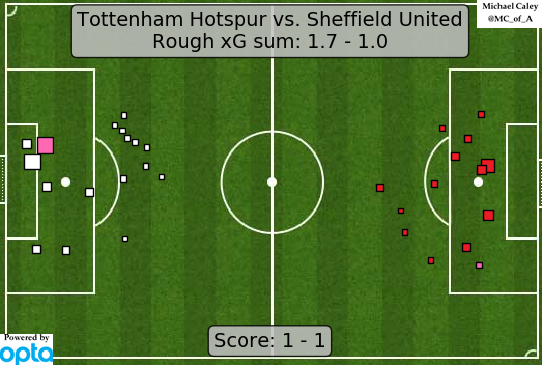Without wanting to sound condescending or start an argument, I'm not sure you fully understand it.
xG doesn't reflect how close you were to scoring: it's a measure of how likely you were to score from your chances in the game.
Take John Lundstram's chance that hit the post: he was extremely close to scoring but it was a shot from a decent distance, and a wide angle, on his weaker foot - meaning the likelihood of him scoring would actually be far lower.
Depending on the source of this xG stat, and how sophisticated it is or isn't, it may not take into account the position of the defenders. This could effectively mean that a shot taken from a good position that instantly blocked may have a high xG, when in reality it's barely a chance.
So essentially, xG denotes the quality of the chance before the ball is kicked, whereas your memory indicates the quality of the chance after the shot is taken. If we happened to have a lower xG than Tottenham, in a game where the balance of chances appeared to be with us, it doesn't mean we didn't deserve the result: it just means we're quite clinical, and make the most out of our chances.

